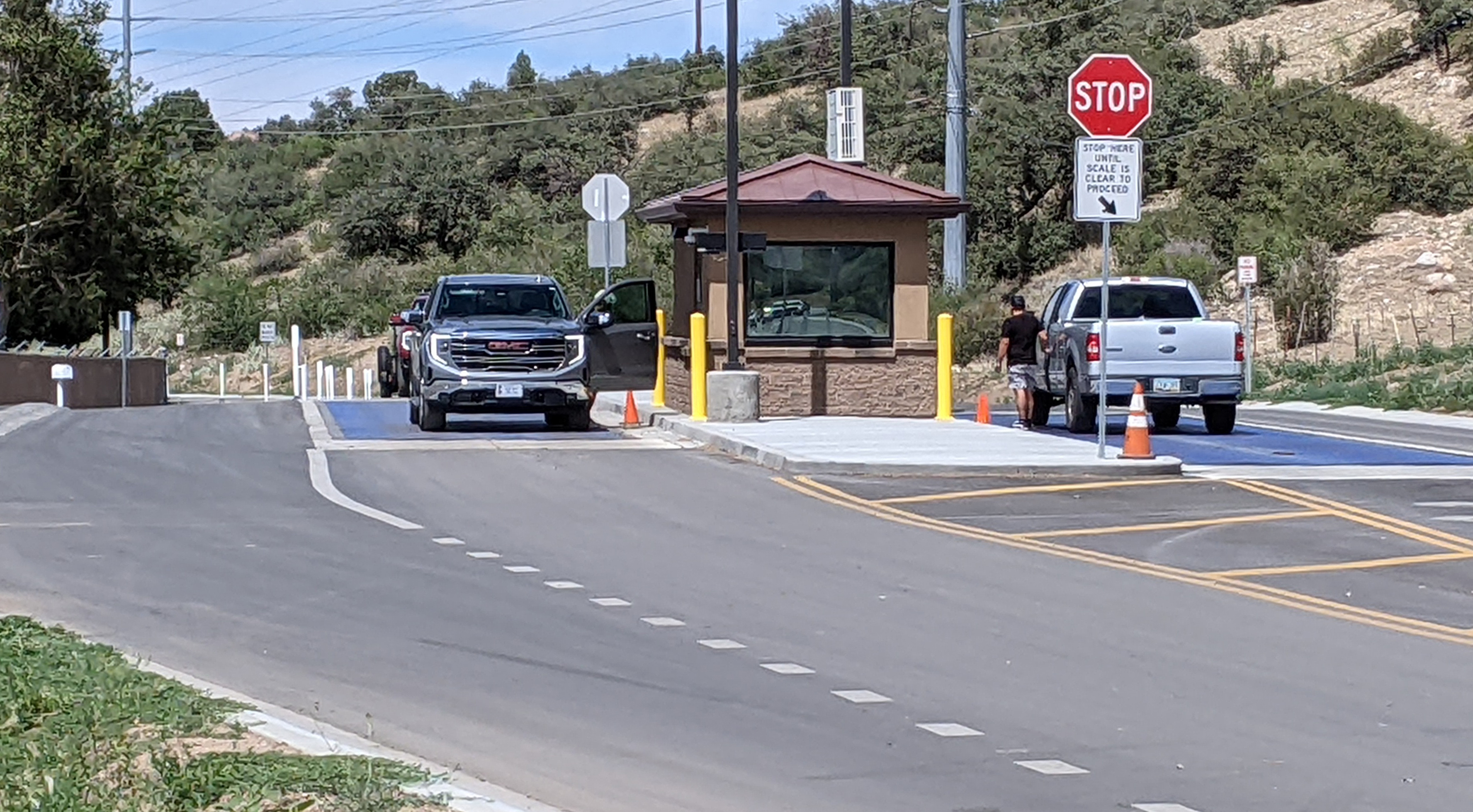Prescott residents are noticing some recent changes at the City transfer station meant to help with traffic tieups during busy times, but leading to some inconvenience for users and concern about the City’s commitment to recycling.

Improving traffic control
The fee booth and scales have moved from inside the transfer-station gate out onto Sundog Ranch Road about 150 feet from the gate.
Both are now in the middle of the roadway, with bypass lanes on both sides for City trucks, staff and other users of the facility. This is intended to reduce traffic backups in the queue and smooth traffic flow, reducing wait times for checkout and payment. Other improvements include repaving and restriping in the area as well as drainage.
Bulk recycling bins
Many have also noted that the blue dumpsters they’ve long used for bulk recyclables disappeared before the recent construction and have not been replaced. Janet Ramsey, the City’s deputy director of public works, says that the transfer station is currently not accepting separated recyclables.
The waste collected at the City’s transfer station is loaded into trucks that haul it to the Gray Wolf Regional Landfill in Dewey. Recycled materials go the City of Phoenix transfer station.
The market for recycled materials has changed substantially over the past couple of decades, and as a result the City has not been able to generate revenue from recyclables for a long time. Even so, recycling remains marginally cheaper than landfilling. Currently the City lists net cost including trucking for recycling at $74.08 per ton, compared with landfill disposal at $77.22 per ton. (The reader should note that every ton of recycled material effectively doubles that savings by reducing landfill tonnage.)
So the economics are not the problem. City Councilor Brandon Montoya says his impression is that staff is responding to a chronic problem with “bad users” of the unattended recycling bins, using them for disposal of trash, furniture and even appliances, which led to their removal and omission from the renovation plan. City staff also report that a significant number of bulk-recycling users were coming in from outside the city because they have no service where they live, and this is seen by many as unfairly “subsidizing” non-residents.
Gary Beverly, chairman of the Sierra Club’s Yavapai Group, agrees that recycling is a complicated issue. He said environmental, economic and energy issues have to be considered with recyclables, and some are worth doing and some not. He said the two most practical recyclables are cardboard boxes and aluminum, and notes that the Yavapai County transfer station in Paulden accepts cardboard and aluminum cans for recycling.
“There’s a solution to be had here,” Montoya says, advocating for a “middle-ground” solution that would keep the bins available to local bulk recyclers, but with more oversight and control during regular business hours. He agrees that the widespread use of curbside recycling and its cost-savings relative to landfilling show that the service is both serving a real need and economically sensible for the City.
To find out more about recycling, such as what materials can be recycled and how, visit prescottrecycles.com.

